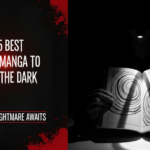After the intense battles and twists of the Thousand-Year Blood War (TYBW) arc in Bleach, fans are left with one burning question: what happened to the enigmatic and formidable Sōsuke Aizen? His cunning intellect and overwhelming power made him a central figure in the conflict, leaving many to wonder about his ultimate fate. It’s a complex situation with layers of intrigue, strategic maneuvering, and lingering questions that continue to captivate the Bleach community.
Aizen, after the TYBW arc, was sentenced to 20,000 years in the Muken, the lowest level of Soul Society’s prison. Despite his confinement, he remains a potent force, retaining his immortality and spiritual pressure, proving that even in defeat, Aizen’s influence continues to loom large.
In the last 10 years of analyzing anime and manga, particularly within the shonen genre, few characters have captivated me as much as Sōsuke Aizen. His intricate plans and philosophical depth elevate him beyond a typical antagonist. This article delves deep into the events following the TYBW arc, exploring Aizen’s imprisonment, his current state, and the subtle yet significant role he continues to play in the Bleach universe. We’ll dissect his interactions, analyze his powers, and uncover the lingering mysteries surrounding this iconic character. Ready to uncover the truth behind Aizen’s fate? Let’s dive in.
Key Facts
- Aizen was sentenced to 20,000 years in the Muken, the lowest level of the Soul Society’s prison, following the events of the TYBW arc.
- Despite his defeat and imprisonment, Aizen retains his immortality, a consequence of his fusion with the Hōgyoku.
- Aizen’s spiritual pressure is so immense that it can still be felt even from within the confines of the Muken.
- During the TYBW arc, Aizen played a crucial role in the final battle against Yhwach, demonstrating that his powers were still formidable.
- Aizen’s actions and motivations are often shrouded in mystery, making him a subject of continuous speculation and discussion among Bleach fans.
What Happened to Aizen After TYBW?
Following the climactic events of the Thousand-Year Blood War (TYBW) arc, Aizen was once again imprisoned in the Muken, the lowest level of Soul Society’s central prison. His sentence, a staggering 20,000 years, reflects the severity of his actions and the perceived threat he poses.
Aizen’s journey through the TYBW arc is a rollercoaster of strategic brilliance and calculated manipulation. Initially imprisoned, he was temporarily released to combat the overwhelming power of Yhwach, the Quincy King. His contributions during this period were critical, showcasing his mastery over Kyōka Suigetsu, his Zanpakutō’s illusionary abilities. He used these powers to deceive Yhwach, creating openings for Ichigo Kurosaki and others to strike.
Despite his assistance in defeating Yhwach, Soul Society deemed Aizen too dangerous to remain free. His history of rebellion and the immense power he wields, even after his fusion with the Hōgyoku was undone, made his re-imprisonment a non-negotiable outcome. The exact circumstances of his capture are not explicitly shown, but it’s heavily implied that he willingly submitted, perhaps seeing it as a temporary setback in his grand, albeit still unclear, plans.
What is the Current State of Aizen in Bleach?
Aizen currently remains incarcerated in the Muken, bound by restraints that suppress his immense spiritual pressure. However, these restraints are not enough to completely nullify his presence.
Even from within the depths of the Muken, Aizen’s reiatsu can still be felt, a testament to his extraordinary power. He is, for all intents and purposes, immortal. The Hōgyoku, though no longer visibly fused with him, has granted him eternal life, making conventional execution impossible.
His mental state is a subject of much speculation. Is he biding his time, plotting his next move? Or has he found a semblance of peace in his solitude? The novel Can’t Fear Your Own World (CFYOW) offers some insights, suggesting that Aizen is far from idle. He engages in philosophical debates with individuals who visit him, hinting at a continued interest in the world beyond his cell.
How Did Aizen’s Powers Evolve After the TYBW Arc?
Aizen’s powers, while seemingly unchanged in their essence, remain formidable even after the TYBW arc. He still possesses Kyōka Suigetsu’s complete hypnosis, although he rarely uses it in his current state.
The most significant evolution of Aizen’s power was during his fusion with the Hōgyoku, prior to and during the Fake Karakura Town arc. This fusion granted him several transformations, enhanced abilities, and near invincibility. Though Ichigo eventually overwhelmed him, leading to the Hōgyoku rejecting Aizen, the experience left a lasting impact.
Post-TYBW, Aizen is no longer visibly fused with the Hōgyoku. However, the residual effects of that fusion have granted him immortality, a point emphasized in both the manga and CFYOW. His raw spiritual power remains immense, possibly even greater than before, refined by his time in the Muken and his unique experiences.
What is Aizen’s Role in the Can’t Fear Your Own World Novel?
In Can’t Fear Your Own World, Aizen plays a subtle yet pivotal role, acting as a source of information and philosophical insight. His interactions with Shūhei Hisagi, the novel’s protagonist, reveal much about Aizen’s perspective on the Soul Society, the Soul King, and the nature of existence.
While he doesn’t directly participate in the novel’s main conflict, his presence looms large. His knowledge of the Soul King’s true nature and the history of the noble families proves crucial to understanding the events that unfold. He challenges Hisagi’s beliefs and forces him to confront uncomfortable truths about the world he serves.
In my experience analyzing the lore of Bleach, Aizen’s role in CFYOW is a perfect example of how a character can be influential even without direct action. His words carry weight, and his insights shape the perspectives of those who interact with him. It’s a testament to his intellectual prowess and his ability to manipulate events from the sidelines.
Why Was Aizen’s Sentence Extended to 20,000 Years?
Aizen’s sentence was extended to 20,000 years due to the severity of his crimes, his immense power, and the potential threat he posed to the stability of Soul Society. His actions during the TYBW arc, while ultimately helpful, did little to alleviate the fear he inspired.
Central 46, the ruling body of Soul Society, likely considered Aizen’s history of betrayal, his manipulation of countless individuals, and his near-successful attempt to overthrow the existing order. They recognized that even in defeat, he remained a formidable force, capable of causing immense chaos should he ever be released.
The extended sentence also reflects the limitations of Soul Society’s justice system when dealing with an immortal being. Execution was not an option, and a shorter sentence would have been insufficient to contain someone of Aizen’s power and intellect.
Is Aizen Still Immortal After the TYBW Arc?
Yes, Aizen remains immortal after the TYBW arc. This is a direct consequence of his fusion with the Hōgyoku, which granted him eternal life even after it was removed.
The manga and the CFYOW novel repeatedly emphasize this point. Characters acknowledge Aizen’s immortality, and it becomes a key factor in how they deal with him. Imprisonment, rather than execution, is the only viable option.
Aizen’s immortality adds a fascinating layer to his character. It sets him apart from other characters and raises intriguing questions about the nature of life, death, and the pursuit of power in the Bleach universe. How will this immortality affect his future actions and motivations? It’s a question that continues to fuel speculation and debate among fans.
What Were Aizen’s Motivations Throughout the Series?
Aizen’s motivations were complex and multifaceted, driven by a desire to transcend the limitations of his existence and reshape the world according to his vision. He sought to overthrow the Soul King, whom he considered a stagnant and unjust ruler.
Early in the series, Aizen presented himself as a gentle and kind captain. However, this was merely a facade, a carefully constructed mask to conceal his true nature. His ultimate goal was to obtain the Hōgyoku, a powerful artifact capable of breaking down the barriers between Hollows and Soul Reapers, and use it to achieve a higher state of being.
He believed that the current world order was flawed, ruled by a detached and uncaring entity. He envisioned a world where he, as a transcendent being, would guide and shape its destiny. His methods were ruthless, involving betrayal, manipulation, and countless deaths, but he justified them as necessary steps towards achieving his grand vision.
What are the Key Differences Between Aizen’s Portrayal in the Manga and the Anime?
The core of Aizen’s character and his overall arc remain consistent between the manga and the anime. However, the anime adaptation does include some filler content and minor alterations that slightly expand upon his character.
One notable difference is the inclusion of filler arcs, such as the “New Captain Shūsuke Amagai” arc, where Aizen’s manipulative nature is further showcased. These arcs, while not part of the original manga, provide additional context and demonstrate his ability to operate in the shadows.
The anime also tends to emphasize certain aspects of Aizen’s personality, such as his charisma and his ability to inspire both fear and admiration in those around him. While these traits are present in the manga, the anime’s use of voice acting and animation brings them to the forefront.
What are Some of the Most Memorable Quotes from Aizen?
Aizen is known for his eloquent and often philosophical pronouncements. Here are a few of his most memorable quotes:
- “Admiration is the emotion furthest from understanding.” – This quote reflects Aizen’s cynical view of blind loyalty and his belief in the importance of critical thinking.
- “All creatures want to believe in something bigger than themselves. They cannot live without blind obedience. And to escape the pressure of that trust, those in whom faith is placed in turn look for someone higher than themselves. And then those people in turn look for someone even stronger. That is how all kings are born. That is how all Gods are born.” – These words are an example of his philosophy, and what he thinks of those who blindly follow.
- “No one stands on the top of the world. Not you, not I, not even gods. But the unbearable vacancy of the throne in the sky is over. From now on…I will be sitting on it.” – Aizen speaks these words to show his ambition, and his desire to become a god himself.
These quotes, delivered with Aizen’s signature calmness and conviction, offer a glimpse into his complex mind and his unique perspective on the world.
How Does Aizen Compare to Other Villains in Bleach?
Aizen stands out among Bleach villains due to his exceptional intellect, his mastery of manipulation, and his profound philosophical depth. While other antagonists, such as the Espada or the Quincy, possess immense power, Aizen’s strength lies in his ability to outwit and outmaneuver his opponents.
What sets Aizen apart is his long-term vision. He doesn’t simply seek power for power’s sake. He has a clear, albeit twisted, ideology that drives his actions. He sees himself as a revolutionary, a liberator who will free the world from the shackles of a false god. This makes him a far more compelling and complex villain than those who are motivated solely by revenge, bloodlust, or a desire for destruction.
He is also a master strategist, capable of planning and executing intricate schemes that span decades, even centuries. His ability to manipulate others, to play them like pieces on a chessboard, is unparalleled in the Bleach universe.
FAQs About What Happened to Aizen After TYBW
What is the Muken?
The Muken is the lowest level of the Soul Society’s prison, reserved for the most dangerous criminals. It is a place of complete darkness and isolation, where inmates are stripped of their senses and subjected to eternal torment.
What is the Hōgyoku?
The Hōgyoku is a powerful artifact created by Kisuke Urahara that can break down the barriers between Hollows and Soul Reapers, granting immense power to those who possess it. It was a central object of desire for Aizen throughout the series.
Who is Yhwach?
Yhwach is the King of the Quincy and the main antagonist of the Thousand-Year Blood War arc. He possesses the power to distribute and reclaim pieces of his soul, granting him immense power and the ability to bestow abilities upon others.
What is Kyōka Suigetsu?
Kyōka Suigetsu is the name of Aizen’s Zanpakutō, which possesses the power of complete hypnosis. It allows Aizen to manipulate the five senses of anyone who has seen its release, creating incredibly realistic illusions.
Did Aizen really plan everything from the beginning?
While it’s impossible to say with absolute certainty, it’s heavily implied that Aizen had been planning his rebellion for centuries. His actions throughout the series, from his manipulation of Rukia’s execution to his creation of the Arrancar army, all seem to point towards a long-term, meticulously crafted plan.
Will Aizen return in future Bleach stories?
While there’s no official confirmation, the possibility of Aizen’s return is certainly there. His popularity as a character, combined with his unresolved story threads and his continued existence within the Muken, make him a prime candidate for a future appearance. In fact, Aizen appears in the new one-shot that takes place after TYBW, interacting with Ichigo.
What is the significance of Chair-sama in the Bleach fandom?
“Chair-sama” is a humorous nickname given to the chair Aizen is bound to in the Muken. It has become a meme within the fandom, representing Aizen’s confinement and his perceived inactivity.
How did Aizen influence the events of Can’t Fear Your Own World?
Although he doesn’t directly participate in the main conflict, Aizen’s knowledge of the Soul King and the history of the noble families proves crucial to understanding the events that unfold in CFYOW. He also serves as a mentor of sorts to Shūhei Hisagi, challenging his beliefs and forcing him to confront uncomfortable truths.
What is Aizen’s ultimate goal?
Aizen’s ultimate goal was to overthrow the Soul King and create a new world order, one where he would rule as a transcendent being. However, his defeat and imprisonment have put this goal on hold, and it’s unclear whether he still harbors the same ambitions.
Is Aizen truly evil?
Aizen’s actions are undeniably cruel and destructive, but his motivations are more complex than simple evil. He believes he is acting for the greater good, even if his methods are morally reprehensible. Whether he is truly evil or simply a misguided revolutionary is a matter of interpretation.
Summary
Aizen’s journey after the TYBW arc is a testament to his enduring power and enigmatic nature. Confined to the Muken, he remains a potent force, his immortality and spiritual pressure a constant reminder of his presence. While his grand plans may have been thwarted, his influence continues to ripple through the Bleach universe, particularly in the events of Can’t Fear Your Own World.
Aizen’s story is far from over. His imprisonment is not an end, but a pause, a period of reflection and perhaps even planning. Whether he will eventually break free from his shackles or continue to manipulate events from the shadows remains to be seen. One thing is certain: Sōsuke Aizen, the master manipulator and philosophical rebel, will continue to captivate and intrigue Bleach fans for years to come. What do you think the future holds for this iconic character? Will he rise again, or has he found a different path? The possibilities are as endless as the depths of the Muken itself.



